WASHINGTON: US biodiesel producers on Thursday asked the government to impose antidumping duties on imports of biodiesel from Argentina and Indonesia that it says have flooded the US market and violated trade agreements.
The move by the National Biodiesel Board (NBB) trade group comes after two years of tension between US and foreign producers over soaring imports that the group says have threatened the profitability of domestic producers.
“Our goal is to create a level playing field to give markets, consumers and retailers access to the benefits of true and fair competition,” NBB Chief Executive Officer Donnell Rehagen said in a statement.
The NBB filed its request with the US Department of Commerce and US International Trade Commission (ITC) on behalf of US biodiesel producers.
The Advanced Biofuels Association (ABA), a rival trade group, said the allegations of illegal dumping were untrue. The group includes Louis Dreyfus Co., which makes biodiesel in Argentina, and Wilmar International Ltd., a maker of biodiesel in Indonesia.
“The members of the ABA vehemently oppose this action and expect these petitions’ rejections,” Michael McAdams, president of the group, said in a statement.
The NBB has sought to stymie imports since the US Environmental Protection Agency (EPA) in 2015 allowed Argentine biodiesel imports to qualify for US tax credits as part of the Renewable Fuel Standard (RFS).
Total US imports rose to a record 916 million gallons (3.5 billion liters) in 2016, according to US government data published this week. Argentina represented about two-thirds of US foreign imports, followed by Indonesia and Canada.
Total US demand is 2 billion gallons for the fuel, made mostly from vegetable oils.
The NBB said biodiesel imports from Argentina and Indonesia rose 464 percent from 2014 to 2016 due to “illegal trade activities.”
The petition claims Argentine biodiesel is dumped at about 23 percent below market values and that Indonesian biodiesel is sold around 34 percent below. Dumping is aimed at gaining market share.
Should the Commerce Department agree with these claims, it would levy preliminary antidumping duties in these percentages on the imported products. Any duties would need to be upheld by the ITC and an affirmative decision would lock them in place for five years.
A NBB spokeswoman said the petition was in the works prior to the election of President Donald Trump, who has taken a protectionist stance on business practices.
Argentina’s biodiesel association Carbio rebuffed the dumping accusations, saying the NBB used a definition of dumping that had been rejected by the World Trade Organization (WTO).
Argentina’s Production Ministry, which includes the under-secretariat for international trade, noted that the request came from the private sector.
“It does not mean the government will apply the measure,” Gaston Sandler, a spokesman for the ministry said.
The US Department of Commerce and Argentina’s agriculture and foreign ministries did not respond to requests for comment.
Oke Nurwan, Indonesia’s director-general of foreign trade, said in Jakarta that the world’s top palm oil producer would “not be silent” on the matter, but would work with associations and businesses to address the issue.
“If the US government approves the recommendation, the Indonesian government will cooperate and provide data required to prove that the producers’ accusations are incorrect,” Nurwan said via a text message.
He said Indonesia had taken a similar approach with EU anti-dumping duties, which it is challenging via the WTO.
US urged to slap duties on biodiesel from Argentina, Indonesia
US urged to slap duties on biodiesel from Argentina, Indonesia
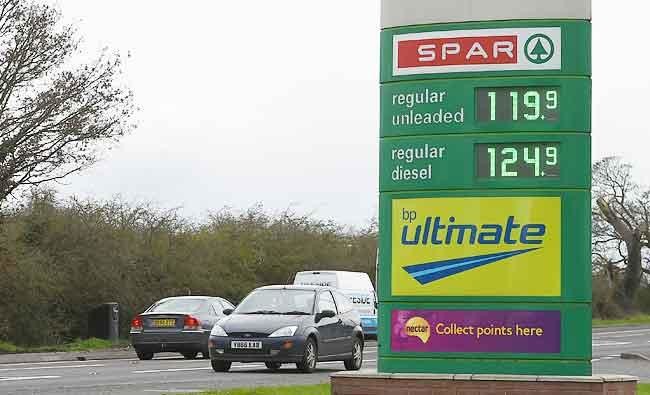
Saudi Arabia’s non-oil revenues up by 3% in Q1 of 2024
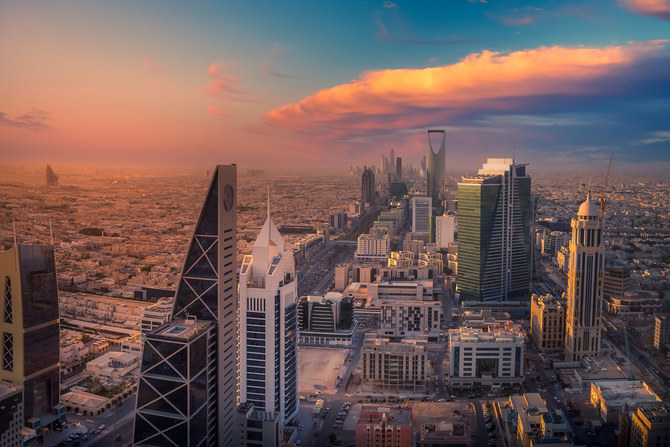
RIYADH: Saudi Arabia’s non-oil revenues rose by 3 percent to reach SR111.51 billion ($29.73 billion) in the first quarter of 2024 the final quarter of 2023, the Ministry of Finance said.
In its quarterly budget performance report, the ministry said the Kingdom posted total revenues of SR293.43 billion in the same quarter, while its public spending amounted to SR305.82 billion.
According to official data, total revenues slipped 18 percent as compared to Q4 of 2023.
In the first quarter of the current year, the Kingdom posted a budget deficit of SR12.39 billion with oil revenues reaching SR181.92 billion.
Saudi bank loans increase by 11% in March to hit $712bn, fueled by real estate activities
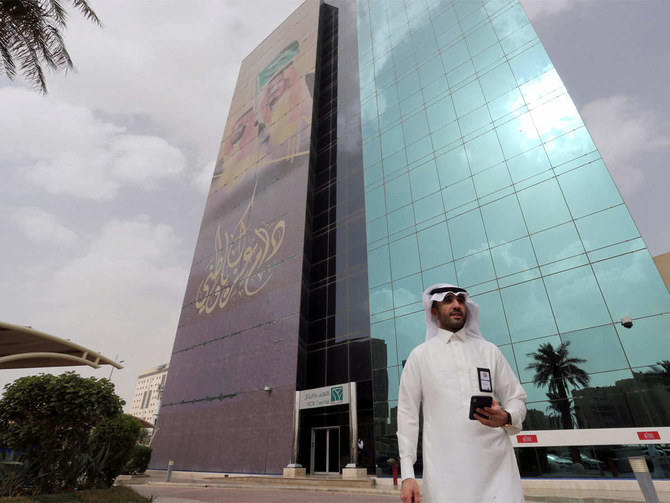
RIYADH: Saudi banks extended loans worth SR2.67 trillion ($711.5 billion) in March, marking an 11 percent increase as compared to the same month in 2023, according to the latest official data.
Figures released by the Saudi Central Bank, also known as SAMA, showed personal borrowings accounted for 35 percent of this growth, while the remaining 65 percent went to the corporate sector, particularly for real estate activities, as well as electricity, gas, and water supplies.
Real estate financing for corporate dealings specifically surged by 27 percent in the third month of the 2024, marking the highest annual growth rate in 10 months, reaching SR275.2 billion.
A study by Mortor Intelligence, which used 2023 as a base year, estimated the Kingdom’s real estate market at $69.51 billion in 2024, and expects it to reach $101.62 billion by 2029, growing at a compounded annual growth rate of 8 percent between 2024 and 2029.
The surge in real estate and construction endeavors may have heightened the need for debt-based financing primarily sourced from the local banking sector. Saudi banks play a central role in the provision of loans for real estate projects.
According to SAMA data, new retail residential mortgage loans experienced a notable increase, reaching a 14-month high at SR7.63 billion in March. This marked a 5 percent rise compared to the amount granted in the same month last year and a 10 percent increase from the previous month.
In March, lending for home purchases accounted for the largest portion, comprising 64 percent of new mortgages to individuals, totaling SR4.91 billion. The most notable growth, however, was observed in apartment loans, surging by 28 percent to reach SR2.24 billion. Meanwhile, land loans experienced a more modest growth of 4 percent, reaching SR474 million in new mortgages.
One factor contributing to this growth could be the need for residential properties from expatriates arriving in the Kingdom, along with government initiatives aimed at modernizing the financial system.
In a March study by Knight Frank, a notable trend emerged among expatriates, with 68 percent expressing a strong preference for owning an apartment rather than a villa. This inclination was especially prominent among individuals aged 35-45 and 45-55.
Growth in lending for electricity, gas and water supplies came as the second contributor in corporate loans after real estate, registering an annual rise of 27 percent to reach SR147.42 billion in March.
According to an April report by Global Data, the key sectors in the Saudi Arabia power market are the residential sector, commercial sector, industrial sector, and others. In 2023, the residential sector had the dominant share in the power consumption market.
The American International Trade Administration also stated in a January report that Saudi Arabia has experienced rapid economic and population growth since the discovery of oil. The population is projected to increase to 40.1 million by 2030.
Due to limited water resources, the country continues to invest in desalination facilities to meet rising water demands, aiming to deliver 2.18 billion cubic meters per year of desalinated water.
The Ministry of Environment, Water, and Agriculture has allocated $80 billion for water projects, with the wastewater treatment services market also expanding steadily according to the report. In 2021, Saudi Arabia built 133 wastewater treatment facilities, marking a 14.66 percent increase from the previous year.
SAMA data also revealed that financing for professional, scientific, and technical activities soared by 54 percent, hitting SR6.4 billion, marking the highest annual growth rate among sectors.
Education loans also showed robust growth, with an annual increase of 28 percent to reach SR6.27 billion. Additionally, financing for administrative and support service activities rose by 20 percent, totaling around SR34.22 billion.
While the proportion of lending allocated to the scientific and education sectors may currently be modest, the Saudi government acknowledges their pivotal significance in driving the Kingdom’s comprehensive transformation agenda.
Recognizing the paramount importance of innovation and fostering a culture of scientific inquiry, the government has implemented diverse initiatives aimed at nurturing these sectors.
These efforts are believed to have played a part in the gradual increase in lending support extended to these sectors by financial institutions. As the Kingdom continues to prioritize knowledge-based industries and endeavors, further advancements and investments in these areas are anticipated to amplify, propelling the nation towards its ambitious developmental goals.
Saudi Arabia’s car imports surge to 160k over last 2 years: official figures

RIYADH: Saudi Arabia’s car imports in 2023 hit 93,199, utilizing all modes of transportation — land, sea, and air — reflecting nearly a 40 percent growth from the previous year.
In the last two years, the Kingdom has imported a total of over 160,000 cars, with 66,870 imports recorded in 2022 alone, according to Hamoud Al-Harbi, the spokesperson for the Zakat, Tax, and Customs Authority, reported Saudi Press Agency.
This positions Saudi Arabia as one of the largest markets globally for automobiles, accounting for more than half of the car sales in the Gulf Cooperation Council countries, and ranking among the top 20 markets worldwide.
According to the authority’s spokesperson, cars were primarily imported from Japan, India, South Korea, the US, and Thailand to the Kingdom during the past two years.
Wael Al-Dhayyab, the official spokesperson for the Saudi Standards, Metrology, and Quality Organization, underscored the rigorous efforts undertaken by the Vehicle Inspection Unit in 2023. They inspected 60,473 vehicles to uphold the highest technical and safety standards.
Concurrently, 18,150 energy efficiency certificates were issued for tire products, highlighting SASO’s commitment to ensuring tire quality and safety in the Saudi market.
Al-Dhayyab emphasized that these endeavors demonstrate the organization’s dedication to enforcing stringent standards, fostering tire quality, and safety.
Moreover, he stressed the body’s pivotal role in advancing energy efficiency and endorsing initiatives aimed at enhancing product safety and economic growth.
Additionally, Al-Dhayyab noted a significant milestone in 2023, with SASO awarding 172 conformity certificates for electric vehicles, witnessing a 465 percent surge from the previous year.
This emphasizes the organization’s crucial role in facilitating the shift toward sustainable energy adoption.
Furthermore, he pointed out that the body issued 1,505 fuel efficiency cards for new light vehicles, indicating its commitment to promoting eco-friendly transportation solutions.
The surge in the import of motor vehicles led to Saudi banks witnessing a 7.67 percent increase in letters of credit to the private sector in the first 11 months of 2023, compared to the same period the previous year.
The data, released by the Saudi Central Bank, revealed that settled LCs and received bills to this sector hit SR155.19 billion ($41.38 billion).
LCs, a financial document issued by a bank, guarantee payment to the seller upon fulfilling specified conditions in a trade transaction.
The growth is primarily attributed to an upsurge in the import of motor vehicles, accounting for around 75 percent of the overall increase.
The import value in this category reached SR39.7 billion, marking a 26.29 percent increase, the data showed.
UAE’s Mubadala Capital plans $13.5bn investment in Brazil’s biofuel sector
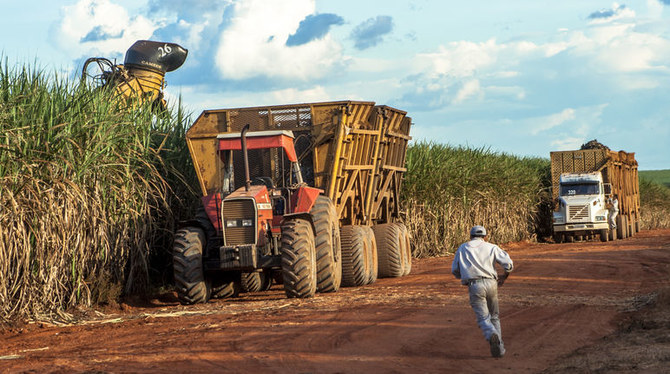
RIYADH: Brazil’s biofuel market is set for substantial growth as UAE’s Mubadala Capital has committed to invest $13.5 billion over the next decade.
Oscar Fahlgren, head of Brazil strategy at the sovereign wealth fund, disclosed the budget for the initiative during an interview with the Financial Times. He divulged the details of the fund’s plans to produce renewable diesel and sustainable aviation kerosene primarily utilizing non-food plant matter.
In his interview with the newspaper, Fahlgren said Mubadala’s Brazilian subsidiary, Acelen, will initiate the development of a large-scale biofuel project by 2026.
The fund’s executive stated that the funds will be sourced through a blend of equity and debt over a span of five to 10 years.
The endeavor will encompass five modules, each valued at $2.7 billion, housing a new biorefinery capable of processing 20,000 barrels of fuel per day. Additionally, it will include the necessary infrastructure and cultivated acreage to sustain the input crop.
“It’s all about feedstock (which) in reality is agriculture. And Brazil is probably the best-placed country on the planet when it comes to agricultural proficiency because of the climate and the fertile soil,” said Fahlgren, adding, “Brazil is to agriculture what Abu Dhabi is to oil.”
The project will also include the conversion of an existing oil refinery in the northeastern Brazilian state of Bahia acquired from government-owned Petrobras in 2021.
“It’s a very important capital project,” Fahlgren said. “I see tremendous opportunity to invest in the green energy transition space in Brazil,” he added.
Mubadala’s venture into bioenergy will leverage its existing $6 billion investments in the country, constituting approximately a quarter of the group’s global portfolio.
“We’ve been very active investing in Brazil, for the past 10-plus years, in an environment where most foreign investors have been shying away,” Fahlgren said.
Mubadala also plans to open a stock exchange in Brazil next year through its Americas Trading Group.
“Brazil is a very large country. It has only one stock exchange. And I think that’s suboptimal infrastructure for the players that operate in this segment,” said Fahlgren.
“It will probably be a staged launch — perhaps start with equities, then expand. No asset classes are off the table.”
The asset management arm of the Emirati sovereign wealth fund is increasing its bets on Latin America’s largest economy, where its holdings span metro lines and medical universities to a majority stake in the local owner of the Burger King brand.
“We’re very bullish on the investment climate in Brazil right now and the opportunities we see,” said Fahlgren. “We do have a number of assets that are relatively mature today, and could be potential exit candidates in the not-too-distant future,” he added.
Eastern Province showcases environmental opportunities during investment forum
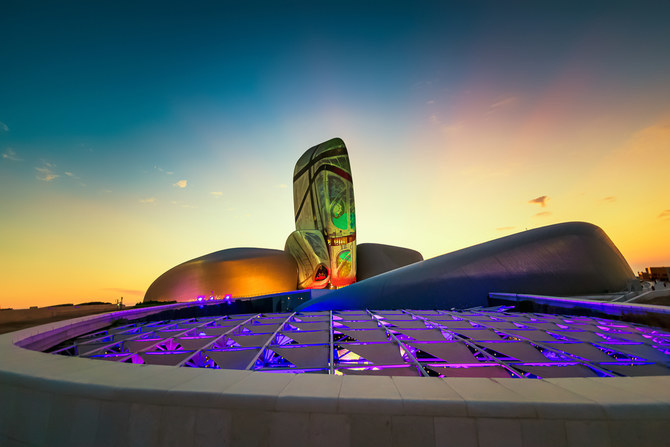
RIYADH: Investors eyeing environmental opportunities in Saudi Arabia’s Eastern Province stand to benefit from a forum held on May 5, amidst efforts to preserve natural resources.
Organized by the Eastern Chamber under the theme “Restoration and Sustainability,” the Environmental Investment Forum 2024 aims to underscore the importance of ecological preservation.
The event, patronized by Prince Saud bin Naif, Gov. of the region, also delves into the effects of environmental regulations and legislation on the business sector, the Saudi Press Agency reported.
Badr bin Suleiman Al-Ruzaiza, chairman of the regional chamber, emphasized the importance of environmental protection within the framework of the Kingdom’s Vision 2030.
He stressed that the country’s ambitious plan views environmental stewardship not only as a religious and ethical imperative but also as a humanitarian duty.
Al-Ruzaiza elaborated that Vision 2030 aims to reduce pollution by improving waste management efficiency across diverse sectors. He underscored the Kingdom’s proactive approach in addressing environmental issues domestically and globally.
The chairman emphasized the paramount significance of the environmental sector in conserving renewable natural resources.
He stressed its pivotal role in laying the essential groundwork for achieving holistic and sustainable growth, ensuring food security, and improving overall quality of life.
He stated that the forum seeks to shed light on the importance of the environment and ways to preserve it, addressing the impact of environmental regulations and legislation on business sectors.
Additionally, it aims to review investment opportunities for businesses in the environmental sector, as well as available financing channels for projects in this vital sector. This represents environmental investment as a key driver and effective element in achieving sustainable development.
Al-Ruzaiza clarified that the forum supports environmental protection practices, presents experiences and solutions, and aims to expand knowledge about investment opportunities related to sustainability. It also focuses on methods for addressing them and implementing associated mechanisms.
He also highlighted the array of sustainability initiatives and programs initiated by the Kingdom to foster green investments across various sectors. Furthermore, he emphasized the nation’s objective of increasing its reliance on clean energy sources, aiming to achieve 50 percent of total energy consumption by 2030.
He also noted the country’s determination to double its spending on investment and financing projects that operate in areas supporting sustainability.
The forum comes against the backdrop of the Eastern Province’s municipality recently unveiling a range of diverse investment opportunities, both permanent and temporary, across cities and governorates in the region.
The municipality had cataloged over 20,000 investment assets covering an area exceeding 116 million sq. m., serving as a database for significant growth in the region, as reported by SPA in March.
These encompass the development of waterfronts, plots, and infrastructure, as well as transportation, markets, and advertising billboards.
Additionally, opportunities for recreational and tourist centers are available. These also cover sports activities, factories, and exhibitions, along with warehouses, workers’ housing, and various tourist and commercial investment sites.











